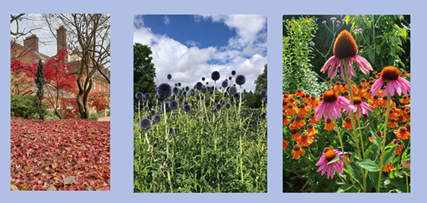Max Tolley MRTPI is England Policy Officer at the RTPI
How design codes can support sustainable development post COP26
The Department for Levelling Up Housing and Communities (DLUHC) has published the guidance and tasked some local planning authorities to test how design codes work in practice. But do they go far enough to meet net zero and nature recovery goals? Our forthcoming joint research seeks to answer that question with practical guidance.
What’s happening with design codes?
Looking back to 30 January 2021 (“Super Saturday for design”), we were treated to the government’s National Model Design Code and guidance notes first being published. They explain the design considerations which local planning authorities are expected to consider when developing local design codes and guides and determining planning applications. It tells us that design codes are “a set of simple, concise, illustrated design requirements that are visual and numerical wherever possible to provide specific, detailed parameters for the physical development of a site or area”.
A revised National Planning Policy Framework (NPPF) shortly followed, requiring local planning authorities to prepare design guides or codes (paragraphs 128 and 129) - making them an increasingly important tool in how we shape places.
For a broader refresh of the government’s design quality agenda, Dr Jenny Thomas, Head of Built Environment at DLUHC summarised the state of play at the RTPI Urban Design Network’s annual event in December 2021. Jenny’s talk and the whole event is worth a watch (2 hours and 27 minutes) with informative quick-fire talks from amongst others Historic England, Public Practice, LDA Design, Urban Design London, Landscape Institute and UWE.
Testing, testing, 1, 2, 3
Guides and codes have the potential to improve design quality, but the pilot schemes aim to show in practice who (needs to be involved), what (are the top tips for success) and where (are skills and resources lacking). We see the pilots as a pragmatic way of identifying problems that may arise in the application of the code and will also hopefully provide some potential solutions.
For a glimpse of how two of the pilots from stage one in Bootle and Nuneaton and Bedworth have progressed this RTPI West Midlands webinar is interesting. We learnt how some teams had undertaken the testing internally, but others had brought in external consultants to address gaps in skills and/or resources. Aspects of the testing process and internal engagement also took longer than anticipated. The next pilots (phase two) are expected to start soon, focused on developing best practice design codes and processes to serve as exemplars for others.
Code green?
You might be thinking this is all great, but isn’t there a code red on climate and biodiversity? How can codes help council officers, applicants and the local community to tackle these challenges?
That got us thinking….
So, the RTPI commissioned LDA Design to explore what a design code delivering net zero, energy efficiency and nature recovery might contain. In partnership with the RSPB, City Science and BSG Ecology (boosted by broad stakeholder engagement) we are now making the final touches to the project and will publish the outputs in a report and two mock design codes shortly.
We were clear that government guidance on design is a valuable resource for everyone involved in the design coding process. But we wanted to go further by exploring how codes might look, with a much greater emphasis on the need to place the zero carbon/ecological emergency at the heart of the coding process. The research analyses how planning and design could better align with net zero and nature recovery, the role of design codes and how to overcome some of the delivery challenges.
The project outputs will be published here soon.
LDA Design previously produced research for the RTPI on net zero transport: the role of spatial planning and place-based solutions.
Dive deeper
- RTPI training masterclass. Online CPD - Planning and Good Design (10 March, 13:30-16:30)
- Design Now: What You Need to Know - RTPI Urban Design Network event 2021 watch here (recorded on 9 December 2021)
- Join the RTPI Urban Design Network (available to RTPI members) and contribute articles for the Network newsletter with your views on planning, design and heritage



